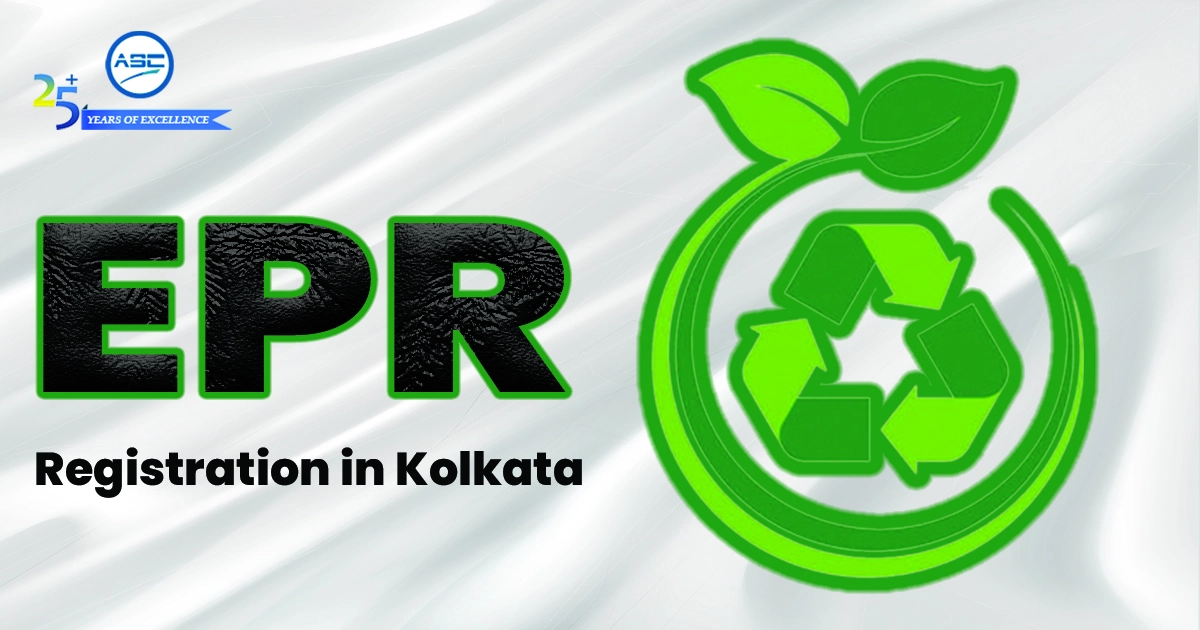EPR Registration in Kolkata

EPR (Extended Producer Responsibility) requires manufacturers, producers, importers, brand owners, and bulk consumers to take responsibility for the end-life management of the product. The EPR Registration in Kolkata, Siliguri, Durgapur, Malda, Asansol, Howrah, Nadia, West Bengal and PAN India is a waste management rule initiated to reduce the environmental impact of products and promote sustainable waste management practices.
Applicability of EPR Registration Waste Management Rule
In general, EPR waste management is applicable to products that generate waste and has a harmful effect on the environment, including hazardous waste that is difficult to recycle.
|
Plastic Waste |
Battery Waste |
|||
|
Producer |
Yes |
Yes |
||
|
Importer |
Yes |
Yes |
Yes |
|
|
Brand Owner |
Yes |
Yes |
Yes |
|
|
Bulk Consumer |
Yes |
No |
No |
Under the EPR rules, producers of Plastic waste, E-waste and Battery waste products and other waste generators are required to register with the State Pollution Control Board (SPCB) and obtain an EPR authorization to operate. The EPR authorization requires producers to develop a plan for the collection, transportation, and disposal of their waste, and to pay a fee to the SPCB to cover the costs of waste management.
Benefits of Obtaining EPR Registration in Kolkata for Waste Management
Obtaining EPR registration in West Bengal or PAN India for waste management has several benefits:
- By obtaining EPR registration businesses can comply with EPR compliance avoid hefty penalties imposed on business
- EPR regulations promote sustainable practices and companies can improve their environment and reduce its impact.
- It stimulates innovation by promoting the development of more sustainable products and technologies.
- EPR Registration initiates a commitment towards environmentally friendly disposal and towards sustainability responsibility,
- It promotes corporate responsibility and brand value.
- It creates new opportunities and larger access to global markets and customers
How ASC Group Will Help You in Getting EPR Certificate in Kolkata?
ASC Group assist in obtaining EPR registration in Kolkata for their waste management and also help in other matter related to EPR Compliance. The team of experienced professional assist in the end-to-end EPR regulations and end-of-life management of the product's waste. Feel free to connect with ASC Group to obtain EPR Certificate in Kolkata and fulfil the recycling target.
- Assist in annual return filing and other legal compliances
- Assist in the complete life cycle such as on collection, transportation, filtration, treatment, disposal and recycling of waste.
- Develop a waste management plan & strategy that provides the complete framework of the waste generated by products and its associate's waste
- Advice in reducing packaging, producing products for recyclability, and promoting the use of recycled materials and packaging
- Conduct an awareness programme for responsible disposal and production of recyclable products.
- Tracking and reporting to demonstrate compliance with the EPR requirements.
- Issuance of an EPR certificate from the CPCB department.
- Arrange to file quarterly returns with the CPCB department.
